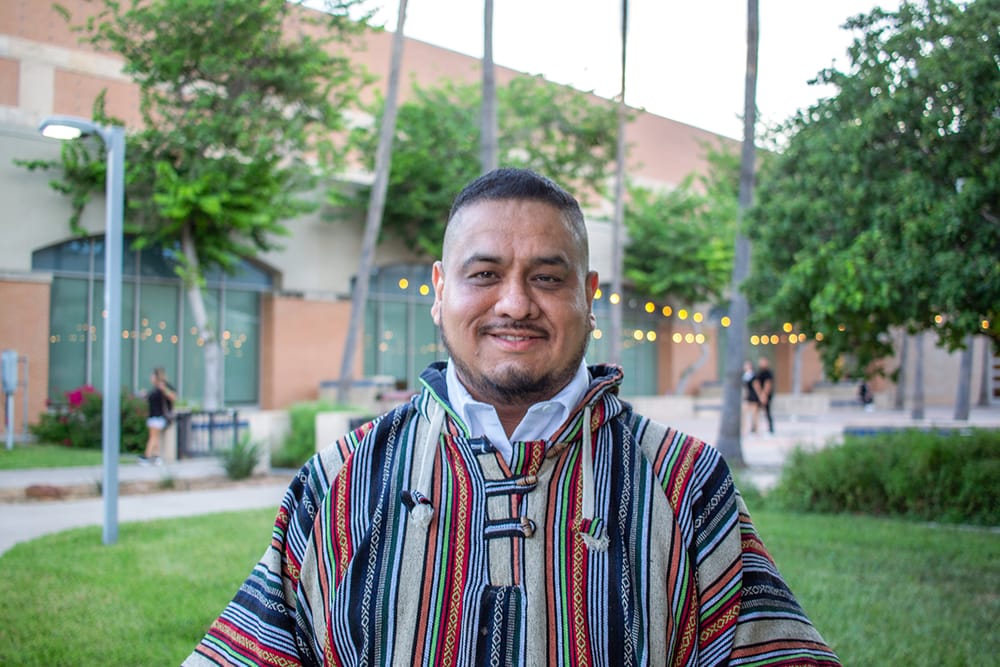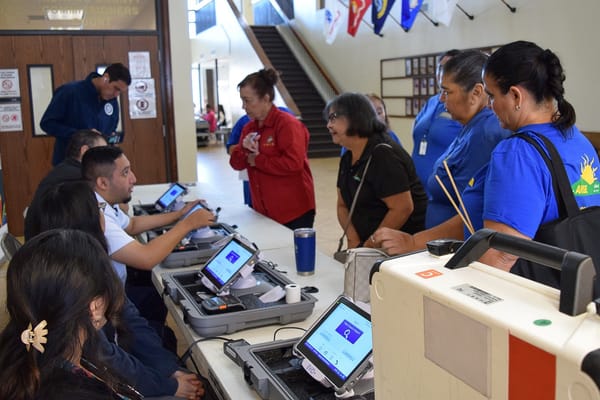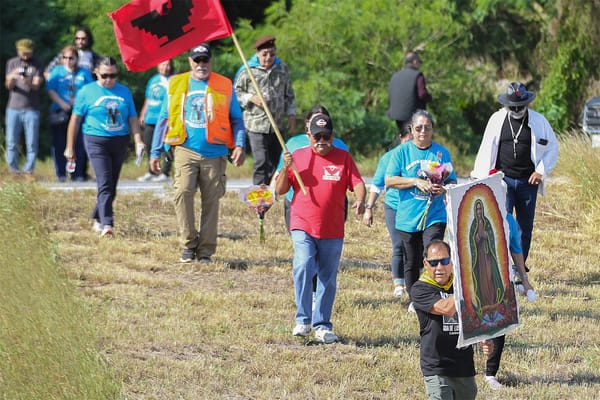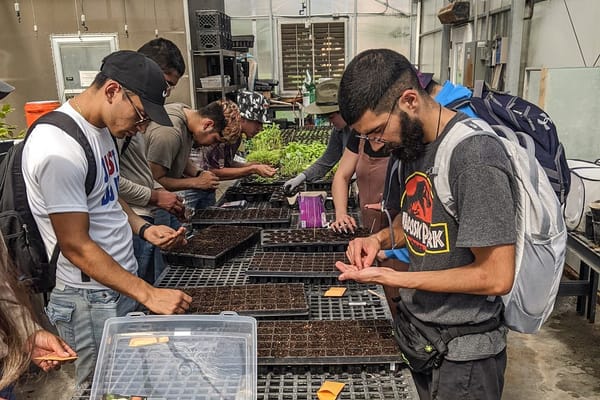Progressive organizers in the Rio Grande Valley find new footing as they protest to save ‘working-class’ programs
Residents say political momentum is building as demonstrators across the Valley gather to defend programs viewed as lifelines for working-class communities.

Residents joined grassroots organizers in McAllen, Harlingen, Brownsville, and South Padre Island for a political action on Saturday under the “Hands off!” banner — a national protest movement sparked by growing fears that the administration of President Donald Trump may move to privatize, defund, or disrupt some of the country’s oldest and most relied-upon public federal programs, including Social Security.
Attendees estimated that at least 100 to 200 people were present at each protest, held alongside Social Security offices across the Rio Grande Valley. Residents demonstrated against cuts to the program, along with Medicare, Medicaid, and educational funding, among others.

The newsletter of independent journalism
from the Rio Grande Valley.
Become a free member
to keep reading.
Sign Up
Already a member? Log in.
Join our community
and support local journalism

Hola, amigos! My name is Pablo De La Rosa. I'm an independent journalist based in the Rio Grande Valley, and Across The Americas is my newsletter — for and about the Texas-Mexico borderlands and the people who make their lives here.
I'm building a local community around good reporting on the most pressing issues in our region. I also believe now is the time to start building connections outside the digital platforms controlled by Big Tech that do more to separate us than bring us together. So I'm asking readers to sign up with their best email.
Across The Americas focuses on bringing our readers nonpartisan, public-service coverage of regional and binational issues important to the people who live here.
This year, I've reported on grassroots political organizing, the environmental concerns on both sides of the border arising from industrial projects, the water crisis on the Rio Grande, and the effects that the Trump administration's policies are having on hundreds of thousands of people in the Rio Grande Valley.
If you're someone who cares about the future of our home and our people, sign up to get in-depth reporting from the Rio Grande Valley you won't find anywhere else — free from the influence of outside interests.
Members also get exclusive invites to community events and some extra surprises. Always free, and always independent.
Saludos!
About Across The Americas

Across The Americas is the newsletter of independent journalism from the Rio Grande Valley, covering the Texas-Mexico region and the deep roots its people share across the continent.
Join four-time award-winning journalist Pablo De La Rosa as he reports on the global forces shaping these regional communities today.
Pablo's voice has appeared on NPR, MSNBC, Texas Public Radio, The Border Chronicle, The Texas Standard and Lighthouse Reports documentaries. In 2022, Pablo helped launch and host the first daily Spanish-language newscast in public media for Texas, broadcasting from the Rio Grande Valley for San Antonio’s NPR member station.
Get in touch
newsroom@acrosstheamericas.com
Sign Up
Already a member? Log in.




